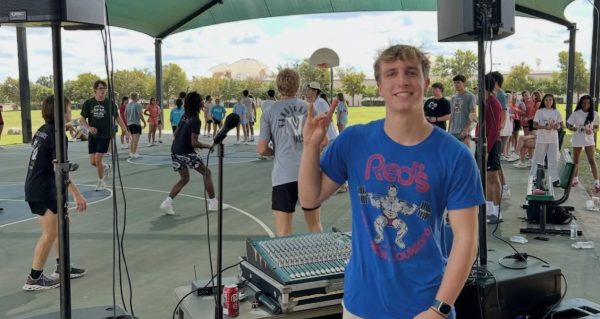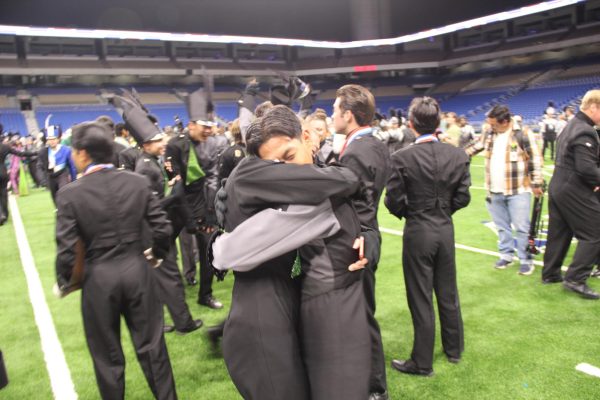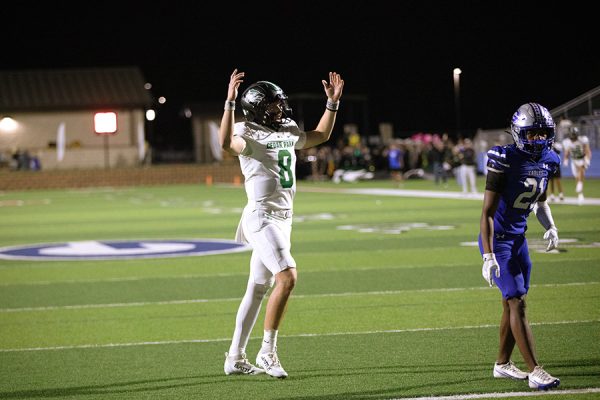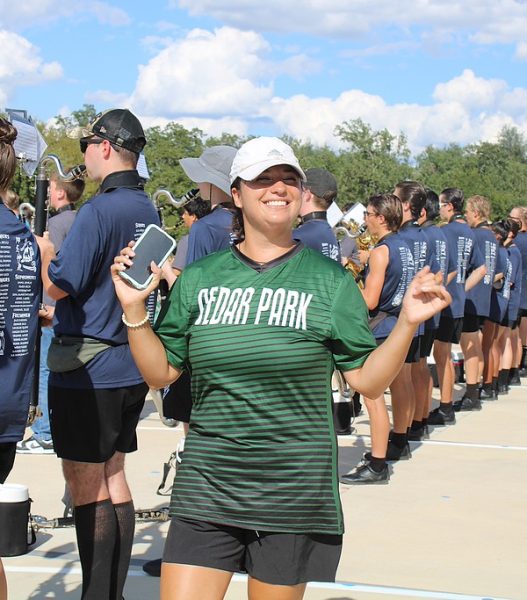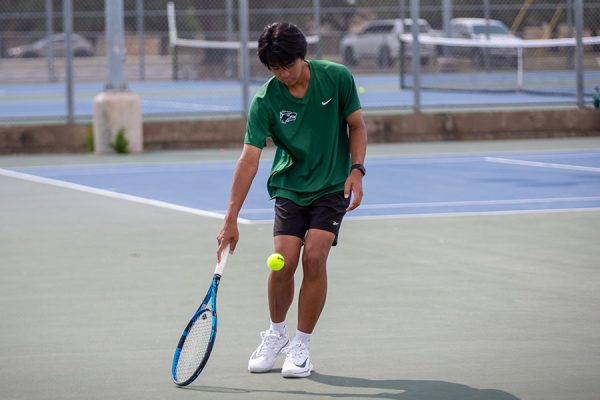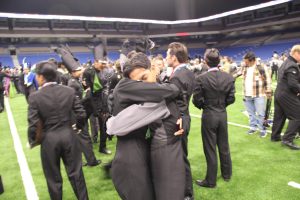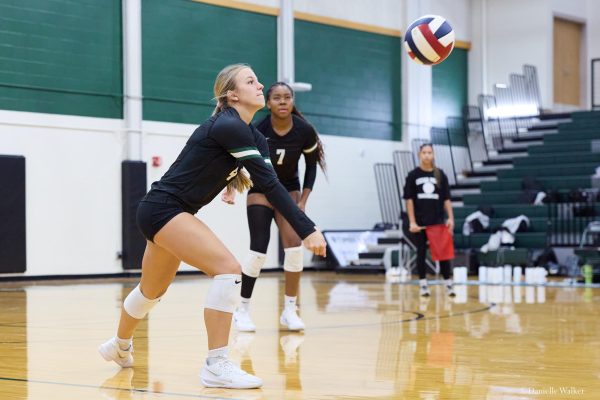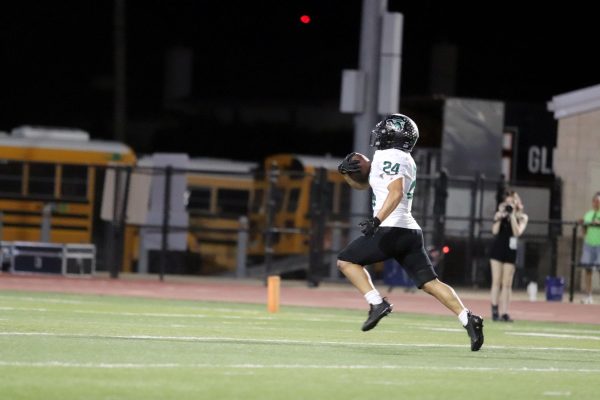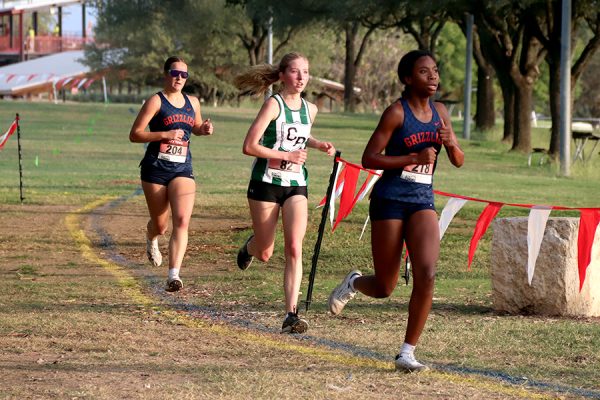Going for the Gold
UIL Academic Students Prepare for District and Beyond
UIL Academics, a largely student-run program where competitors of varying academic interests compete for awards, poses for a photo after the Jan. 14 Burnet practice invitational. From Computer Science to Social Studies, Literary Criticism to Journalism and Current Events, there’s something for everyone. “Of course, the competitions have a lot of weight attached to them,” senior and captain of the UIL Current Events team Kaci Craddock said. “But I try to remind myself that at the end of the day, it’s a fun extracurricular activity. I think it’s very challenging, but also extremely rewarding.”
February 23, 2023
UIL Academics competitions provide a variety of opportunities for students to test their knowledge in a wide array of subjects. From Social Studies to Computer Science, from Journalism to Literary Criticism, students of all interests can compete.
As the teams approach district competitions in March, UIL Academics students are practicing for their upcoming events.
“I really love how it brings together all people from all subjects,” senior and captain of the UIL Current Events team Kaci Craddock said. “There’s so many different teams, so it really brings together this very diverse group of students who all have interests and other things. And we all are involved in other things as well. So it’s really just hanging out with them. You spend a lot of time together because you’re waiting for competition. So my favorite part is probably just studying together and being able to connect with people who have a passion for different subjects.”
The teams are mainly run by students, with a senior captain for most teams guiding the process of studying and meetings.
“It’s a student-led thing,” UIL Coordinator and U.S. History Teacher Josh Marsh said. “I mean, I’m the behind the scenes, whereas they’re the ones that are on the front lines, kind of doing the actual studying. It’s like a sport, you know? If you’re dedicated to the task, you’re going to practice and you’re going to do the reading, you’re going to do all the extra stuff that you need to do in order to be successful.”
With over 30 contests at the high school level, the UIL Academics competitions are ways for students of all backgrounds and interests to compete in their skill set. Craddock said there are many benefits to competing in UIL Academics.
“They’re very different,” Craddock said. “So it’s difficult, but it’s a good challenge, because you have to prepare, and the ways you prepare are so different. For Current Events, it’s really keeping up with the news, reading articles and ensuring that you’re knowledgeable about politics and technology and different advancements in science and the business world. But Lit Crit is completely different, because we have source material that we’re supposed to have knowledge of and we’re given a reading list. And then we’re all supposed to have knowledge about literary history, prose and other terms. So it’s just two very different ways of studying. But I think that balancing those actually helps studying for both of them, because I dedicate time to both.”
Unlike other courses, Social Studies is a course provided with a specific theme, this year’s being the Roaring ‘20s. Senior and captain of the UIL Social Studies team Jaden Kolenbrander said it was interesting to dive deep into whatever subject is required.
“I think it’s a really interesting era,” Kolenbrander said. “I didn’t know too much about the era, aside from the generic stuff like from reading ‘The Great Gatsby’ in my junior year. But, much of the modern era of America really started in the 1920s. You see a lot of modern political, social, cultural, economic trends that started in the 1920s. I think it’s really fascinating.”
With other academic teams, like UIL Literary Criticism, the rubric is based much more on memorization and recognizing terms. Senior and member of the Literary Criticism team Ashley Chikkala said preparing for the test could get difficult..
“Lit Crit is just the oddest trivia you will ever see in your entire life,” Chikkala said. “I mean, some of the questions are like, ‘What was an avant-garde poetry movement in Russia in 1842, that ended in 1903?’ And you’re supposed to know what that is. It’s acmeism, by the way. And it was focused on realism in poetry, and it’s really gory for some reason. The list of what they could ask you is never-ending. They have all the things on all the political prizes, every literary age, every type of movement that there’s ever been. So you really need to prepare for it. And you obviously get better from your first test. But for a Lit Crit test, having a score of a 60 or 70 is a great score.”
When it comes to the upcoming district and regional competitions, UIL students have a lot to prepare for and take into consideration. Invitational meets are a helpful way for teams to get a feel for how the next competitions will look, but there are other aspects that only come into play in the official competition. For example, the wildcard, which is the highest scoring second place team among all of the competition’s respective geographical areas, is allowed to advance alongside all first place teams, and can often lead to unexpected victories – including for the Current Events team last year.
“We can’t really rule anything out,” Kolenbrander said. “Last year, the only reason Current Events advanced to State was because we were the wild-card. That’s already a super tight victory. To get into even more detail, though, we were tied with a second-place team from another region, and the only reason we came out on top is because the fourth-placing member of our Current Events team scored higher than their fourth-placing member. So I’m definitely aware that we could advance by the skin of our teeth, and I’m preparing the Social Studies team for that possibility.”
According to Marsh, the results of the hard work UIL Academics competitors have put into the competition have proven how valuable they are to the school’s community – especially the captains who have been training and guiding teammates throughout the process almost all on their own.
“The seniors have to take credit for being part of a group of kids last year, with seniors that pushed Cedar Park to be the best that we have been,” Marsh said. “We ended up getting fourth place as a school out of all 5A [region] schools. That is the best we’ve ever done. Mr. Sloan even recognized the fact that we were that successful at graduation; that was a big thing for Cedar Park. [UIL] Academics, unfortunately, is not something that has always been focused heavily upon. And I think that this year, or even the past couple of years, this group of kids and the success that they’ve shown, proves this is a big thing. This is as good, or on par [with,] athletics. And I think as we keep getting stronger, I’m hoping that the kids that are the freshmen and sophomores will see this and would want to be part of the teams, because freshmen and sophomores are what’s going to build for the future, and even if they’re just getting their feet wet with how things are being run, how the competitions are working. By the time they are juniors and seniors, it’s going to be more successful for them.”



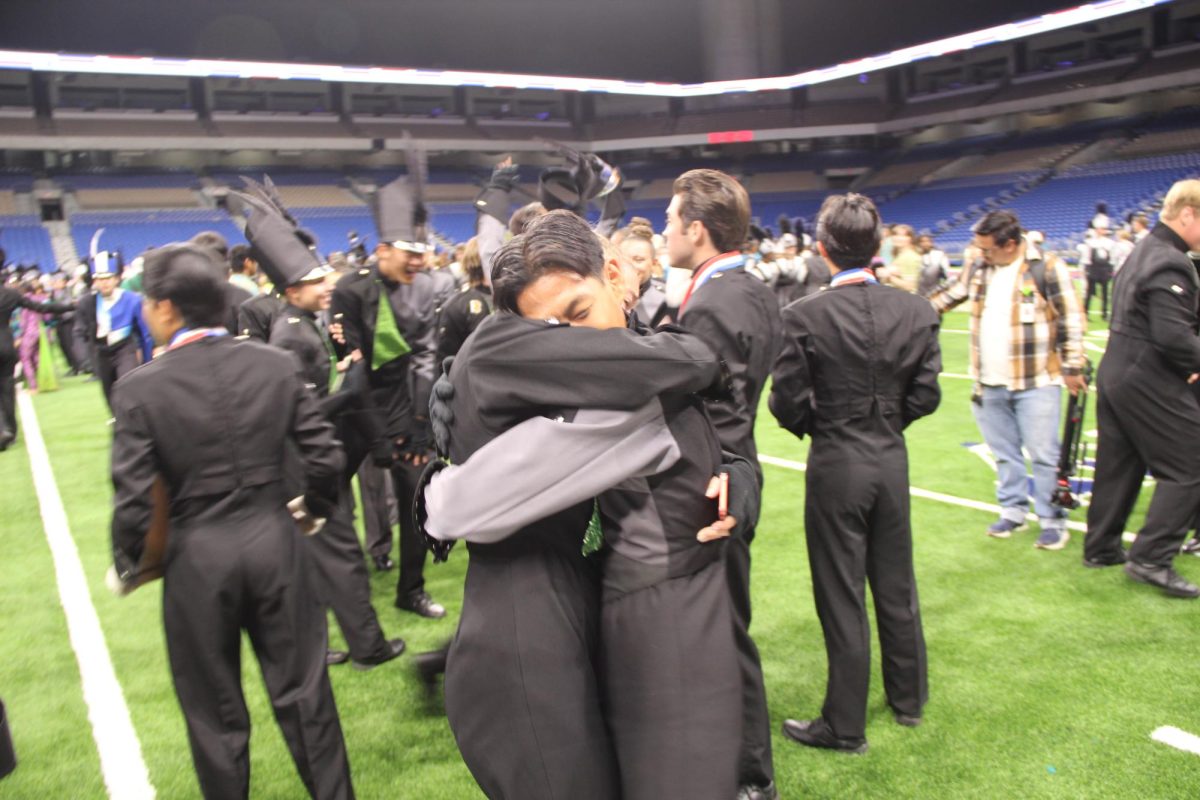
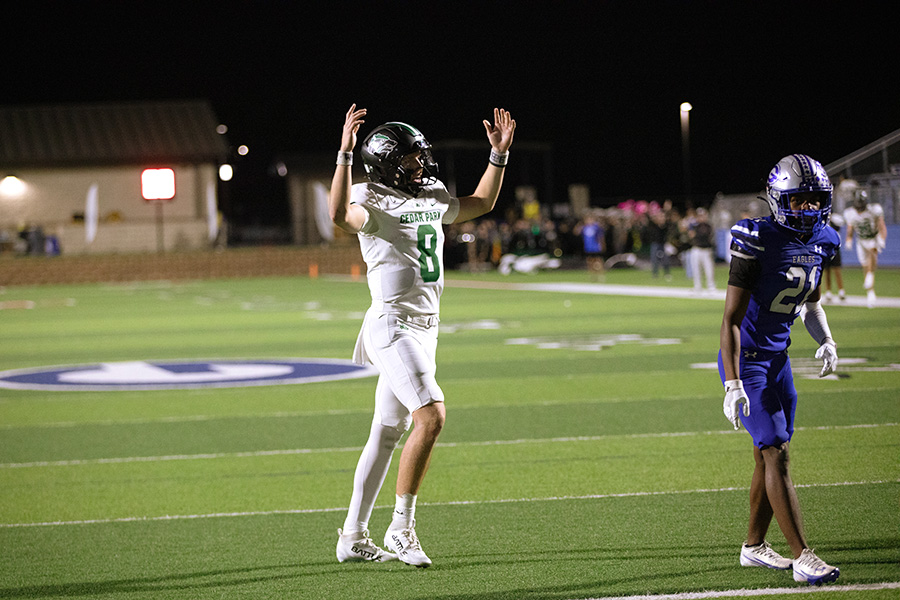

![Senior Jett Mckinney stores all the clothes in his own room, with half of it stored in his closet along with his personal clothes, and the rest taking up space in his room.
“There’s been times [when] there’s so much clothing stored here and it gets overwhelming, so I end up having to sleep somewhere else in the house,” Mckinney said.](https://cphswolfpack.com/wp-content/uploads/2025/11/DSC_0951-1200x800.jpg)



![Broadcast, yearbook and newspaper combined for 66 Interscholastic League Press Conference awards this year. Yearbook won 43, newspaper won 14 and broadcast took home nine. “I think [the ILPC awards] are a great way to give the kids some acknowledgement for all of their hard work,” newspaper and yearbook adviser Paige Hert said. “They typically spend the year covering everyone else’s big moments, so it’s really cool for them to be celebrated so many times and in so many different ways.”](https://cphswolfpack.com/wp-content/uploads/2025/05/edited-ILPC.jpg)




![Looking down at his racket, junior Hasun Nguyen hits the green tennis ball. Hasun has played tennis since he was 9 years old, and he is on the varsity team. "I feel like it’s not really appreciated in America as much, but [tennis] is a really competitive and mentally challenging sport,” Nguyen said. “I’m really level-headed and can keep my cool during a match, and that helps me play a bit better under pressure.” Photo by Kyra Cox](https://cphswolfpack.com/wp-content/uploads/2025/09/hasun.jpg)

![Bringing her arm over her head and taking a quick breath, junior Lauren Lucas swims the final laps of the 500 freestyle at the regionals swimming competition on date. Lucas broke the school’s 18-year-old record for the 500 freestyle at regionals and again at state with a time of 4:58.63. “I’d had my eye on that 500 record since my freshman year, so I was really excited to see if I could get it at regionals or districts,” Lucas said. “ State is always a really fun experience and medaling for the first time was really great. It was a very very tight race, [so] I was a bit surprised [that I medaled]. [There were] a lot of fast girls at the meet in general, [and] it was like a dogfight back and forth, back and forth.” Photo by Kaydence Wilkinson](https://cphswolfpack.com/wp-content/uploads/2025/03/Kaydence-2.7-23-edit-2.jpg)
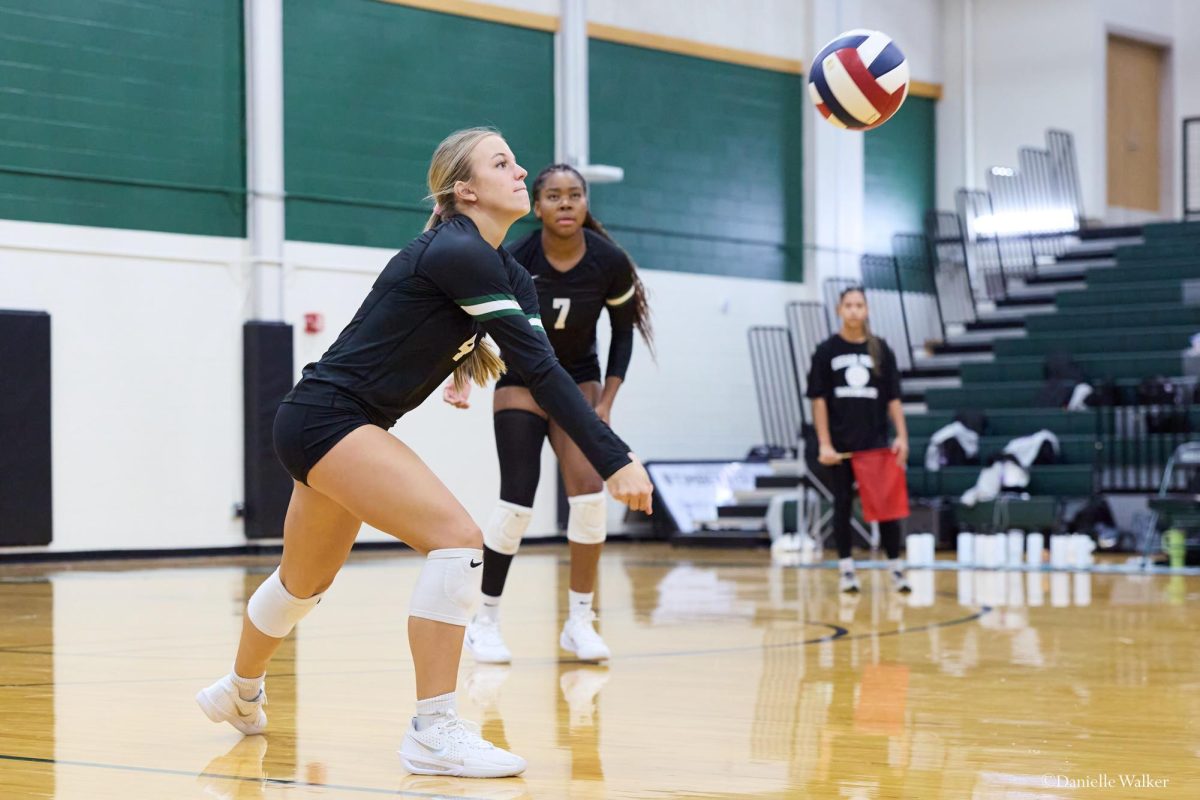

![As her hair blows in the wind, senior Brianna Grandow runs the varsity girls 5K at the cross country district meet last Thursday. Grandow finished fourth in the event and led the varsity girls to regionals with a third place placement as a team. “I’m very excited [to go to regionals],” Grandow said. “I’m excited to race in Corpus Christi, and we get to go to the beach, so that’s really awesome.” Photo by Addison Bruce](https://cphswolfpack.com/wp-content/uploads/2025/10/brianna.jpg)

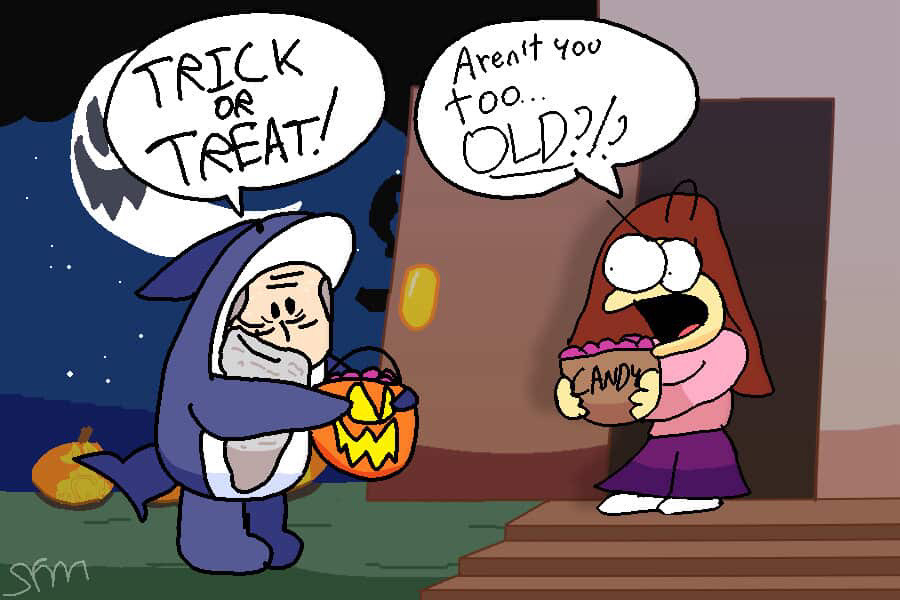















![Holding a microphone, baseball booster club president Chris Cuevas announces the beginning of the annual cornhole tournament. The event has been held for the past two years and is designed to raise money for the baseball program in a fun way. “We’re a baseball team, so people love to compete,” Cuevas said. “So we figured we better do something that gets [their] attention. They want to compete. It’s not a hard sport to do, and we have all different [skill] levels [of participants].” Photo by Henry Mueller](https://cphswolfpack.com/wp-content/uploads/2025/11/Henry-715-1200x900.jpg)


